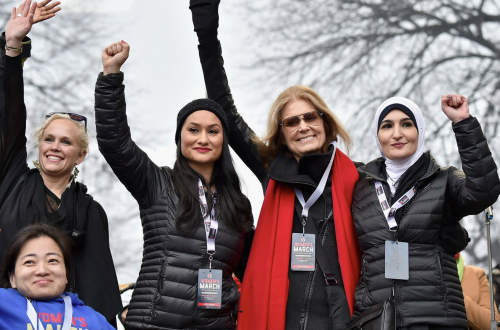The movement of settlers into Silwan this month has ignited a wave of controversy and everyone from Obama to Nir Barakat has waded in and stated their opinion. The international community and many in Israel are treating this as simply another case of settlers grabbing land. They’re wrong to do so.
If there was a land grab it was done in 1980 when the then Israeli government passed the Jerusalem Law stating that Jerusalem is and shall remain the united capital of Israel. One thing I haven’t heard is many people suggesting that the Old City stop being part of Jerusalem or that Jews going to live there are settlers.
So why Silwan?
No one other than Guatamala and El Salvador recognises the Jerusalem Law. Just about every country in the world says the diplomatic equivalent of “it’s complicated we’ll keep the embassy in Tel Aviv for the time being”.
The truth is that we here in Israel who are not well disposed to the occupation have become lazy in our knowledge of the Holy Land. The controversy that settlement to Silwan has caused looks more like a case of left wing organisations following the lead of Palestinian organisations and Western governments. It should be the other way around. Just because the Palestinian Authority is against something that doesn’t have to mean the left in Israel follows suit.
Although the movement of Jews within the municipal boundaries but from West to East Jerusalem is controversial I don’t see why such controversy should equal instant condemnation. This is far too complicated for that. Regarding the settlement in Silwan Peace Now has the following to say;
Settlements in East Jerusalem have never been about promoting coexistence or establishing equal housing for Israelis and Palestinians in all areas of the city. They are and have always been about creating facts on the ground in order to prejudice any future peace negotiations related to Jerusalem and, potentially, to block a future Palestinian capital in the city. If this effort succeeds, it will mean that the two-state solution is lost, and with it, Israel’s ability to survive as a Jewish state and a democracy.
This is pretty disingenuous on the part of Peace Now bearing in mind that polling of Arab residents in East Jerusalem has consistently shown that more residents would wish to be citizens of Israel than a Palestinian state (with a further 35% undecided).
At a time when the head of the Labour Party in Israel openly calls the Gush Etzion block as much a part of Israel as Tel Aviv one can’t help but ask exactly where the borders of the country are supposed to be?
The fact that the Jews who are living in Silwan are doing so with armed guards to protect them and the fact that any Arab selling his property to a Jew in Silwan is facing a death sentence are all worrying in and of themselves, but those aren’t reasons why Jews shouldn’t be living in Silwan. What is at the heart of this issue is the fact that municipal investment in Silwan and other neighbourhoods that form East Jerusalem is almost non-existent. We annexed the Eastern half of the city and allowed a situation whereby the people living there aren’t citizens of the country.
This has led to a situation where Arabs who are actually well disposed towards being Israelis are rioting. It stands to reason that if we talk about equal rights for Jews in terms of where they have a right to live we should also be talking about equal rights for Arabs in terms of the amount of investment areas predominantly Arab receive. They want the same level of infrastructure and support offered to the Jewish part of the city. I don’t blame them.
According to a report published by the United Nations Conference on Trade and Development (UNCTAD) last year “Palestinian neighbourhoods of East Jerusalem (which host 30 per cent of the city’s population) received only 11.72 per cent of the municipal budget in 2003 (Margalit, 2006) and 7 per cent in 2009 (ACRI, 2009).”
Furthermore according to an EU HOMS report published earlier this year the provision of municipal services to the residents of East Jerusalem is so low that residents don’t even have proper sewage systems;
Palestinians constitute approximately 39 percent (approx. 372, 000) of the population in Jerusalem, but the municipal budget spent on Palestinian neighbourhoods is disproportionally lower, not reaching above 10%. Public services dealing with poverty, unemployment as well as healthcare in East Jerusalem provided by the GoI and Jerusalem municipality are insufficient (three offices in East
Jerusalem comparing to 18 in West Jerusalem,). Palestinian areas are characterised by poor roads, little or no street cleaning, limited sewage systems (shortage of at least 50 km of pipelines) causing health hazards and an absence of well-maintained public spaces – in sharp contrast to areas where
Israelis live (in West Jerusalem as well as in East Jerusalem settlements). Access to Israeli banking and postal services in Palestinian neighbourhoods is limited.
Furthermore despite the fact that the government has pledged investment of NIS 300 million into East Jerusalem, the lion’s share of this money will be spent on extra security measures including extra police and security cameras. This doesn’t address the fundamental causes of unrest so much as the symptoms of it. If anything residents of East Jerusalem are going to feel more like they are being discriminated against than before.
If Silwan is a part of Israel and a part of the capital of our country enough to allow the free movement of Jews in then it is also enough a part of Israel to allow for precisely the same amount of investment in predominantly Arab areas as in Jewish Jerusalem.
Clearly Jews should be able to live anywhere they like within the capital city of our own country. But by the same token the municipality must treat every citizen of East Jerusalem in the same way as it treats those of West Jerusalem.
Please note I slightly re-edited this piece after posting


